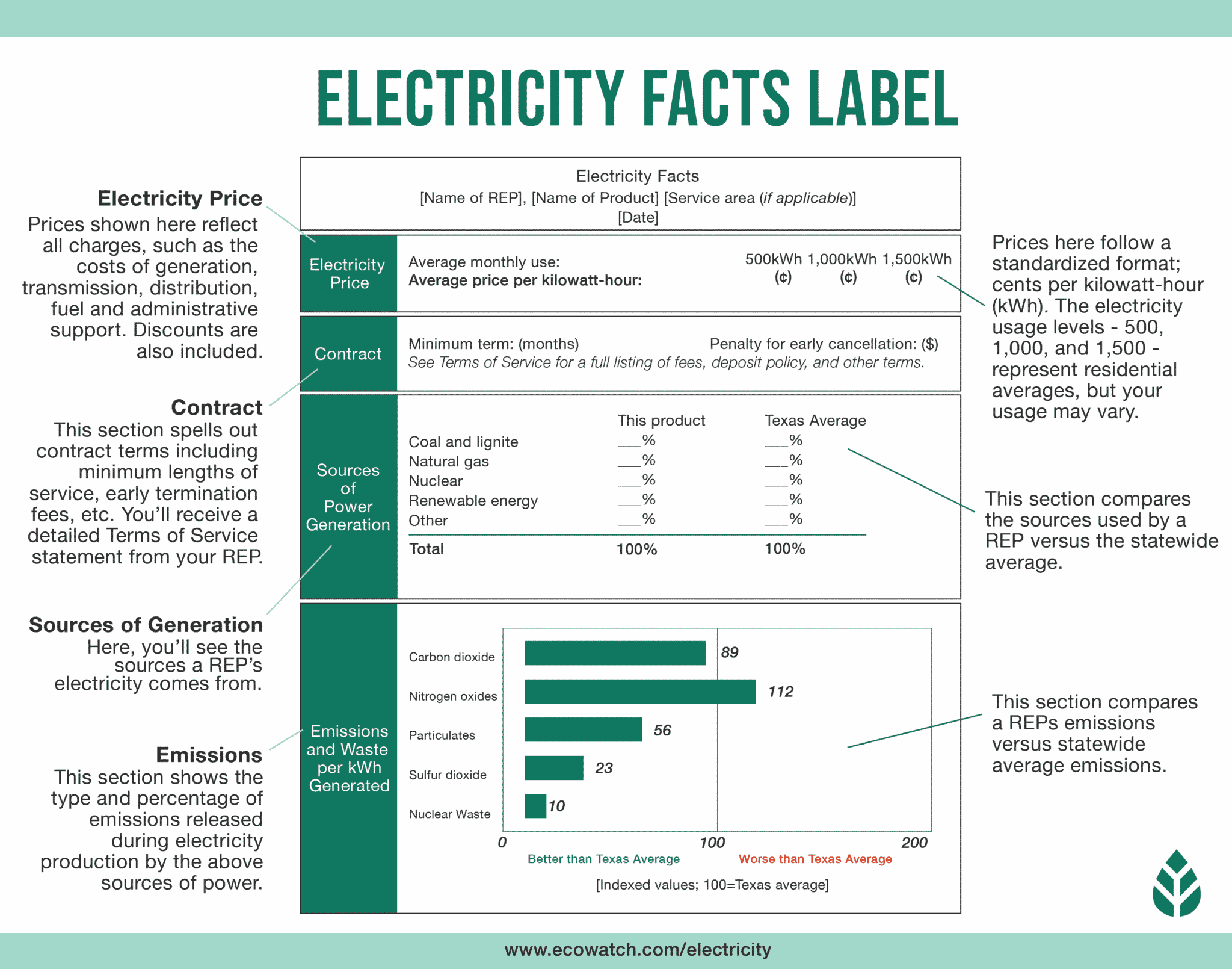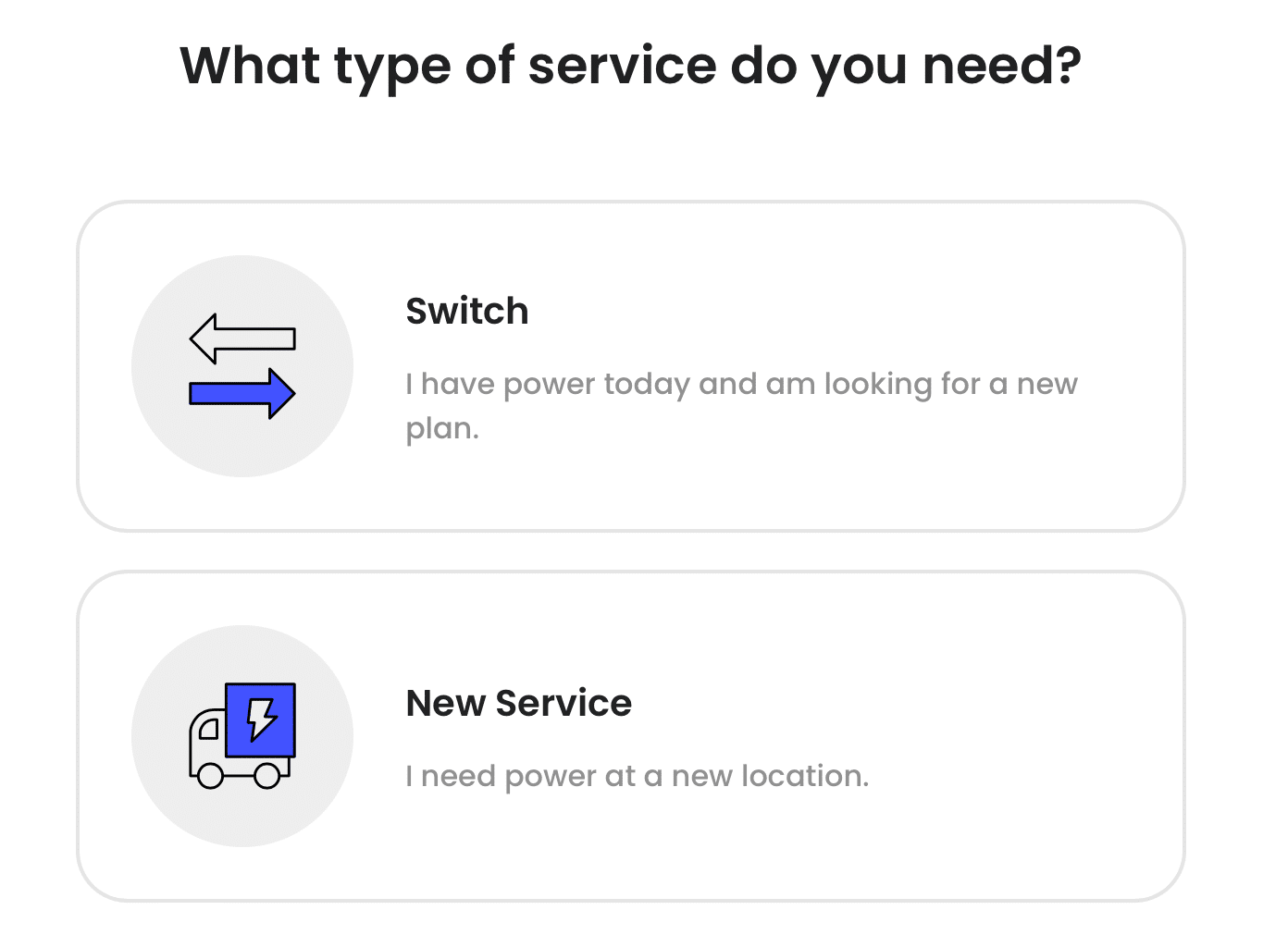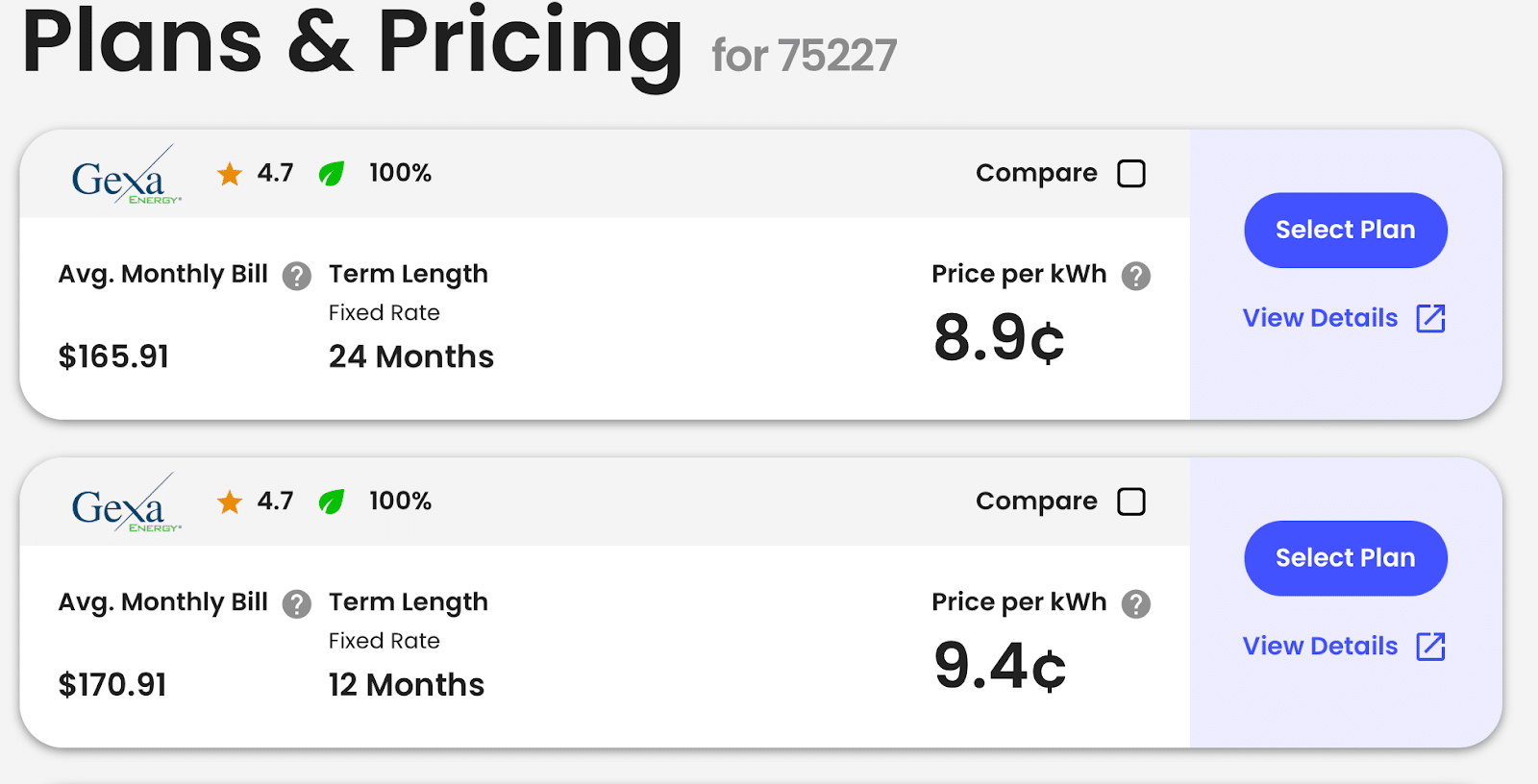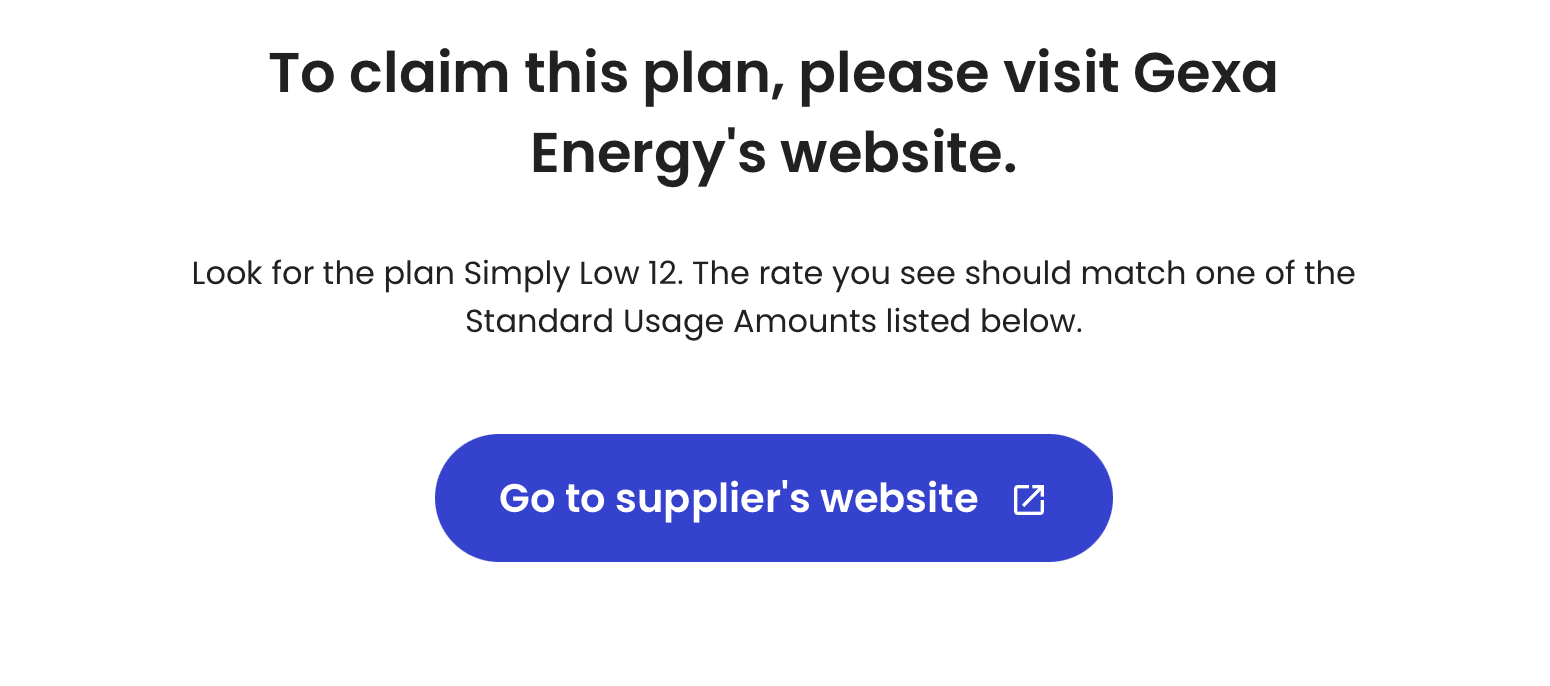 Home
Home
Texas Electricity Rates and Providers (2024)
Here’s a quick overview of Texas electricity rates:
- Current average retail rate of electricity: 14.58 cents per kilowatt-hour1
- Current range of electricity prices in Texas: 10.9 to 23.5 cents per kilowatt-hour2
- Average monthly electric bill: $162.173
- Average energy usage: 1,178 kilowatt-hours3
**Information above verified as of March 2024
Each product and or company featured here has been independently selected by the writer. You can learn more about our review methodology here. If you make a purchase using the links included, we may earn commission.
Cheapest Texas Electricity Rates
Overall, Discount Power currently has the lowest electricity rates in Texas at just 10.9 cents per kWh, around 25% lower than the average cost per kWh in the Lone Star State. The plan requires a 24-month contract and doesn’t use any renewable energy to supply your home, which is a major drawback, in our opinion. It also doesn’t come with a satisfaction guarantee, whereas some of the top providers include one for between 30 and 90 days.
| PROVIDER |
CHEAPEST ELECTRICITY RATE IN TX (¢/KWH)* |
PLAN LENGTH (months) |
PERCENT OF RENEWABLE ENERGY** |
| Discount Power |
10.9 |
24 |
0% |
| Gexa Energy |
11.3 |
12-24 |
100% |
| Change Energy |
11.3 |
12-24 |
0% |
| Frontier Utilities |
11.3 |
12-24 |
0% in each plan with 100% renewable plan options (in some areas) |
| Express Energy |
11.3 |
12-24 |
0% |
| Flagship Power |
12.9 |
36 |
0% |
| TXU Energy |
13.9 |
12 |
0% |
| TriEagle Energy |
13.9 |
24-36 |
0% |
| Cirro |
14.5 |
24 |
0% in each plan |
Best Electric Companies in Texas
The EcoWatch Reviews team narrowed down the top clean-energy providers in the state. Start connecting with suppliers by using this tool or by clicking the links below to compare prices and find the right plan for you.

Constellation Energy

Nationwide Service
Average cost
Pros
- Many years of experience
- Great industry reputation
- Award-winning company
- No.1 producer of carbon-free energy in the U.S.
- Makes charitable contributions
Cons
- Charges contract cancellation fees
- No prepaid or no-deposit plans
|
PLAN NAME |
CONTRACT LENGTH (MONTHS) |
AVG PLAN RATE (¢/KWH) |
|
Constellation Tiered Rate |
12 |
12.9–25.8 |
| Constellation Fixed Rate + Bill Credit |
12 |
14.0 |
| Constellation Fixed Rate + Bill Credit + A/C Protect Plus |
36 |
14.0 |
| Constellation Green Fixed Rate + Bill Credit |
12 |
14.5 |
|
Constellation Fixed Rate + Bill Credit + A/C Protect Premiere |
36 |
15.0 |
Constellation Energy was the only electricity provider in Texas to score a perfect rating (rounded up) from the EcoWatch Reviews team — that’s a tough thing to do.
It’s easy to brag about Constellation Energy from a sustainability standpoint. Constellation is the top producer of carbon-free energy in the United States and offers a 100% renewable energy plan option.5
On top of that, Constellation Energy has many years of experience and has maintained an excellent reputation, which isn’t easy for electricity providers to do. The company currently has an A+ rating on the Better Business Bureau (BBB).
Constellation also offers unique incentives to its customers, like a 36-month plan that offers AC unit protection for two units and HVAC diagnostics. Under this plan, you’ll get a $35 bill credit if you use more than 1,000 kWh per month and an extra $15 if you use more than 2,000 kWh per month. That extra $50 will help if you’re facing high electricity bills from cranking the AC during Texas’ hot summer months.
Unfortunately, there are some unfavorable qualities to choosing Constellation Energy. The company is heavily invested in nuclear energy, which it qualifies as a carbon-free energy source (this is what allows it to claim that it’s the top producer of carbon-free energy in the U.S.).6 Technically speaking, nuclear energy is carbon-free, but it does come without its own environmental concerns.
The company charges contract cancellation fees (most electricity providers do) and doesn’t extend prepaid or no-deposit plan options.
Facts and Figures: Constellation Energy
| EcoWatch Rating |
|---|
| Better Business Bureau (BBB) Rating |
| Average Cost ($-$$$$$) |
| Solar Services |
| 5 |
| A+ |
| $$$$ |
| 100% Renewable Energy Plans, Fixed-Rate Plans, Variable-Rate Plans, Home Solar |

Green Mountain Energy

Nationwide Service
Average cost
Pros
- Green-e certified plans
- Wide variety of contract term options
- Low number of customer complaints
- Many years of experience
- Makes charitable contributions
Cons
- Charges contract cancellation fees
- No prepaid or no-deposit plans
- No satisfaction guarantee
| PLAN NAME |
CONTRACT LENGTH (MONTHS) |
AVG PLAN RATE (¢/KWH) |
| Green Mountain Energy Pollution Free e-Plus 36 |
36 |
14.9 |
| Green Mountain Energy Pollution Free e-Plus 24 |
24 |
15.5 |
| Green Mountain Renewable Rewards Solar Credit 12 |
12 |
15.6 |
Of all the renewable electricity providers in Texas, Green Mountain Energy seems to be the greenest of the green. All of its Texas electricity plans are 100% powered by wind or solar energy and the company operates with a zero-carbon footprint. Additionally, Green Mountain Energy offers Green-e® certified plans, which is a certification for renewable energy that meets the highest standards in North America.
Green Mountain was founded in 1997, making it the longest-serving renewable energy retailer. Its ‘Local Solar’ plan also allows you to tap into its 100% solar energy plan by sourcing electricity from solar parks in the Houston, Dallas-Fort Worth and McAllen areas, allowing you to support local renewable efforts in the Lone Star State.
While Green Mountain Energy has an A+ rating on the BBB, it is not BBB accredited. Other downsides to Green Mountain include contract cancellation fees, no prepaid or no-deposit plans and no satisfaction guarantees.
Facts and Figures: Green Mountain Energy
| EcoWatch Rating |
|---|
| Better Business Bureau (BBB) Rating |
| Average Cost ($-$$$$$) |
| Solar Services |
| 4.5 |
| A+ |
| $$$ |
| 100% Renewable Energy Plans, Fixed-Rate Plans, Variable-Rate Plans, Home Solar, Month-to-Month Plans |

TXU Energy

Average cost
Pros
- Wide variety of plan options
- Many years of experience
- Great industry reputation
Cons
- Expensive
- Not as many renewable energy options as competitors
- Charges contract cancellation fees
| PLAN NAME |
CONTRACT LENGTH (MONTHS) |
AVG PLAN RATE (¢/KWH) |
| TXU Energy Solar Buyback Match 36 |
36 |
14.6 |
| TXU Energy Free EV Miles 12 |
12 |
15.7 |
| TXU Energy Simple Rate 12 |
12 |
17.7 |
| TXU Energy Saver’s Choice 12 |
12 |
18.7 |
TXU Energy makes it easy for you to make greener choices. In fact, current TXU Energy customers can turn their plan green simply by requesting the “GreenUp” option, where TXU will buy renewable energy credits from Texas Wind Power to offset your grid usage.
While RECs aren’t our preferred option, they are fairly standard these days, and TXU Energy is still a favorite for EcoWatch because they’re a great match for Texas homeowners with solar panels or electric vehicles, offering the following incentives:
- Savings of 50% when your EV is charging with their EV Pass plan
- Additional electricity savings if you go solar in Texas
- Purchasing your solar energy through buyback credits
Even if you don’t yet have solar panels, you can still take advantage of solar energy with TXU’s Energy Free Nights & Solar Days plan. With this plan, your daytime electricity is 100% powered by solar or wind power. Then, you have completely free electricity between the hours of 8 p.m. and 6 a.m.
Lastly, TXU has a Solar Saver option, which is a membership-style plan that covers your daytime energy needs from solar farms in Texas for the first 500 kilowatt-hours of the month.
The downside to TXU Energy is that its green options (and even its non-green options) are a bit more expensive compared to the average Texas electricity rate. Its lowest solar plan sits at 14.6 cents per kWh as of March 2024.
Facts and Figures: TXU Energy
| EcoWatch Rating |
|---|
| Better Business Bureau (BBB) Rating |
| Average Cost ($-$$$$$) |
| Solar Services |
| 4 |
| A+ |
| $$$$$ |
| 100% Renewable Energy Plans, Fixed-Rate Plans, Variable-Rate Plans, Prepaid Plans, No-Deposit Plans, Business Energy Plans |

Rhythm
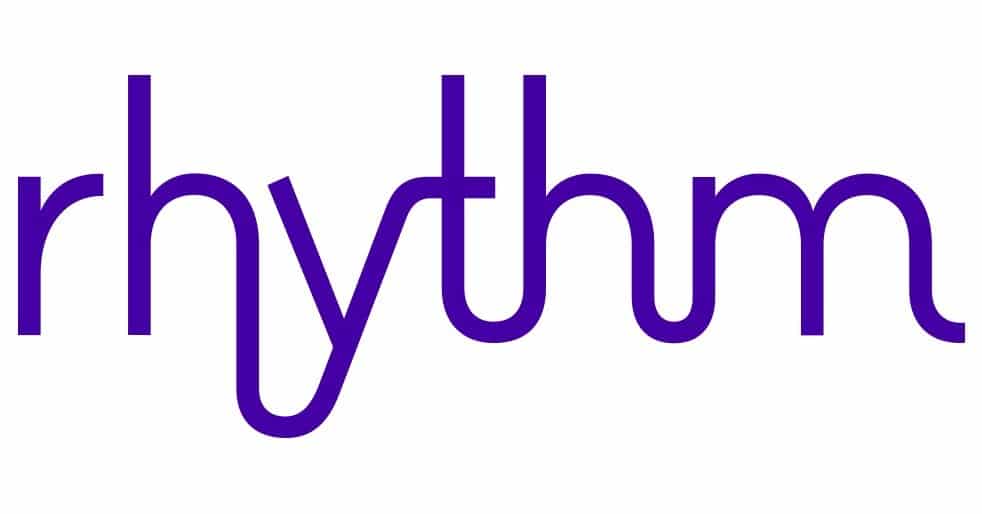
Statewide Service
Average cost
Pros
- Low number of customer complaints
- Values transparency
- Up to $150 in bill credits to cover switching fee from old provider
- Charges contract cancellation fees
Cons
- Young company
- No prepaid, no-deposit or variable plans
| PLAN |
CONTRACT LENGTH (MONTHS) |
AVG PLAN RATE (¢/KWH) |
| Rhythm PowerShift Seasonal 3 |
3 |
12.1 |
| Rhythm Digital Discount 12 |
12 |
13.9 |
| Rhythm PowerShift EV Seasonal 12 |
12 |
14.0 |
| Rhythm PowerShift Seasonal 12 |
12 |
14.2 |
| Rhythm Simply Protect 24 |
24 |
14.4 |
Rhythm Energy stands apart from other providers primarily because of its outstanding customer ratings. It has an A+ rating on the BBB, as many other companies do, but its customer rating score is an impressive 4.19 out of 5 stars. For comparison, most other providers we reviewed sit below a 2 out of 5. Combined with Rhythm’s 30-day customer satisfaction guarantee, you can rest assured that you’ll get the service you deserve when singing up with this company.
We also are partial to Rhythm Energy because it only offers 100% renewable plans, so it’s making a difference while remaining one of the more affordable companies out there. All of its plans provide all of the energy from renewable sources, and several of the companies plan options still come with below-average costs per kWh.
Rhythm also offers a few different ways to enjoy that renewable energy, including a no-installation solar plan that provides energy exclusively from solar panels, PowerShift plans that help optimize savings if you charge an EV at home, and a month-to-month plan that’s entirely green.
Facts and Figures: Rhythm
| EcoWatch Rating |
|---|
| Better Business Bureau (BBB) Rating |
| Average Cost ($-$$$$$) |
| Solar Services |
| 4 |
| B |
| $$$ |
| 100% Renewable Energy Plans, Fixed-Rate Plans |
What’s the Difference Between Utility Companies and Electricity Provider Companies in Texas?
Retail Electricity Providers (REPs) purchase electricity on the wholesale market and sell it to customers at varying rates. While you can choose your own REP, you don’t have a choice of utility company (called a TDU in Texas). Your TDU will automatically be assigned to you based on where you live.
Unlike REPs, TDUs handle the transmission of electricity. In other words, utilities are responsible for delivering electricity to your home, despite your choice of REP. TDUs are also responsible for the reliability of your electricity. Your choice of REP will not affect the frequency of power outages that you may experience.
There are technically five TDUs in Texas: Oncor, Centerpoint, AEP Texas North, AEP Texas Central and Texas New Mexico Power (TNMP). The majority of Texans are served by Oncor, followed by AEP and CenterPoint. TNMP serves roughly 260,000 customers in the western part of the state.7
Keep in mind that your utility will impact your electricity rates, but not as much as your REP. Each TDU has its own costs for delivering electricity, meter readings, wiring and more. You’ll pay these charges no matter which Texas energy plan or provider you choose, and they’ll be baked into the monthly bill from your REP. All TDU rates are regulated by the Public Utility Commission of Texas (PUCT).
What Types of Energy Plans Are Offered in Texas?
Most Texas electric companies will offer a few plan options for customers to choose from. Here’s an overview of the different types offered in the Lone Star State, as well as their advantages and disadvantages, so you can pick what’s best for your household.
Texas Fixed-Rate Plans
Just as it sounds, a fixed-rate plan allows you to secure a rate that will stay the same throughout the entire duration of your contract.
Note that “fixed rate” does not mean that your electric bill will be exactly the same every month. Instead, it means the rate you pay per kilowatt-hour (kWh) of electricity won’t change. So, your bills will still be higher during months you use more electricity.
PROS OF A FIXED-RATE ENERGY PLAN IN TEXAS |
CONS OF A FIXED-RATE ENERGY PLAN IN TEXAS |
| You’ll have a better idea of what to expect when it comes to budgeting. | If you cancel early, you could be subject to an early termination fee (ETF), unless you’re moving to an address outside of your electricity service’s coverage area. |
| Your rates remain locked in if energy costs rise. | Some fixed-rate plans will turn into variable-rate plans upon contract expiration. Be sure to read the fine print and ask your energy provider specific questions about length and price. |
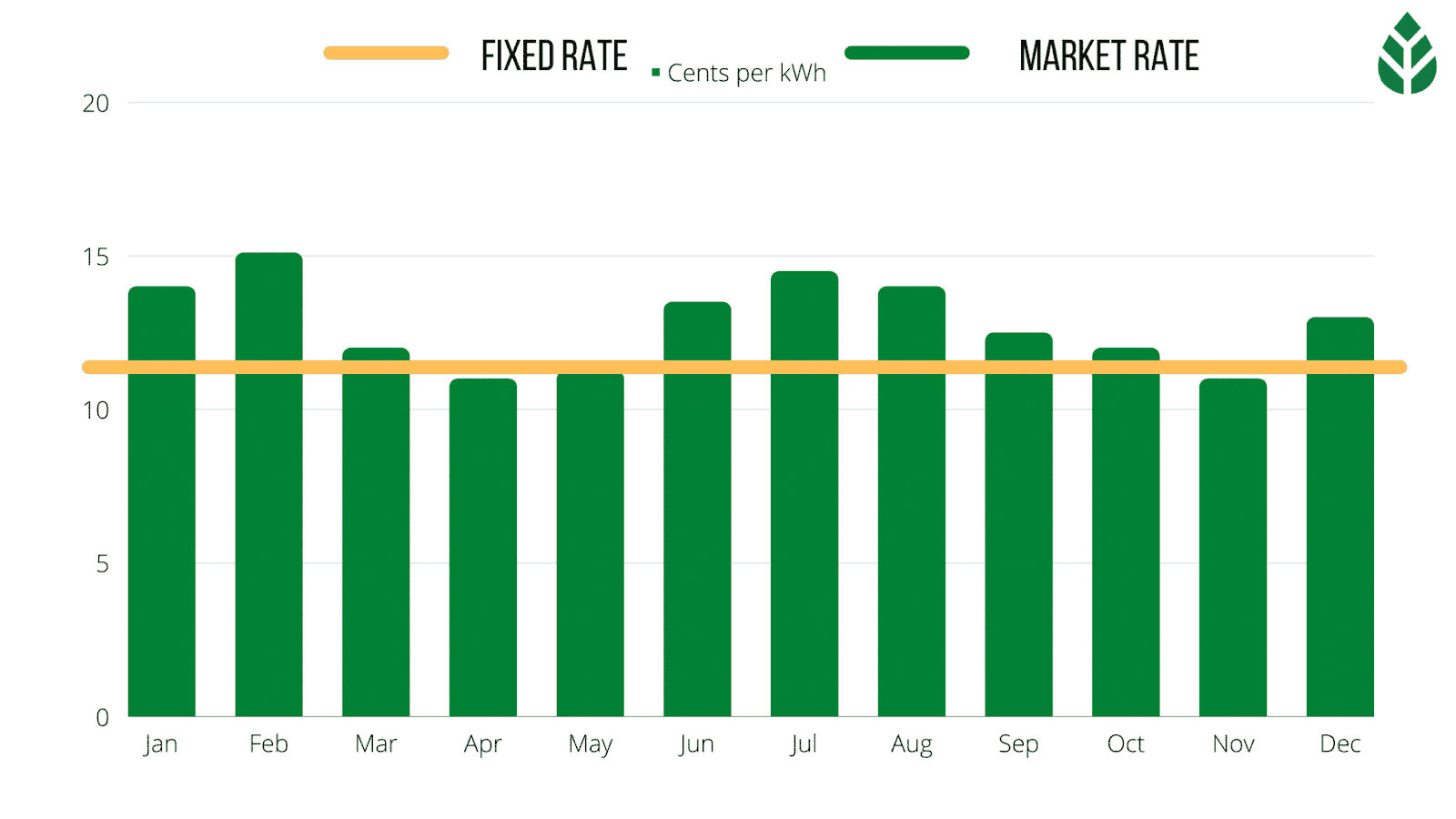
Variable-Rate Plans for Texas
If you prefer paying month-to-month instead of being locked into a length-based contract, you may consider a variable-rate electric plan.
A variable rate means — you guessed it — the price you pay is based on variables in the energy market. The price per kWh will increase or decrease depending on supply and demand.
| PROS OF A VARIABLE-RATE ENERGY PLAN IN TEXAS | CONS OF A VARIABLE-RATE ENERGY PLAN IN TEXAS |
| If the price of energy drops, there may be some months where a variable-rate electric customer will be paying less per kWh than someone on a fixed-rate plan. | Variable rates can be very risky given the extreme weather or other factors that can suddenly — and drastically — increase the price of electricity. |
We saw the biggest risk of the variable-rate plan during Texas’ winter storm of February 2021, when millions were in the dark due to a massive power outage. Texans who kept their lights on paid the price, with at least one customer facing an electric bill over $16,700.10 Texas power companies were reportedly overcharged $16 billion dollars by the electric grid operator.
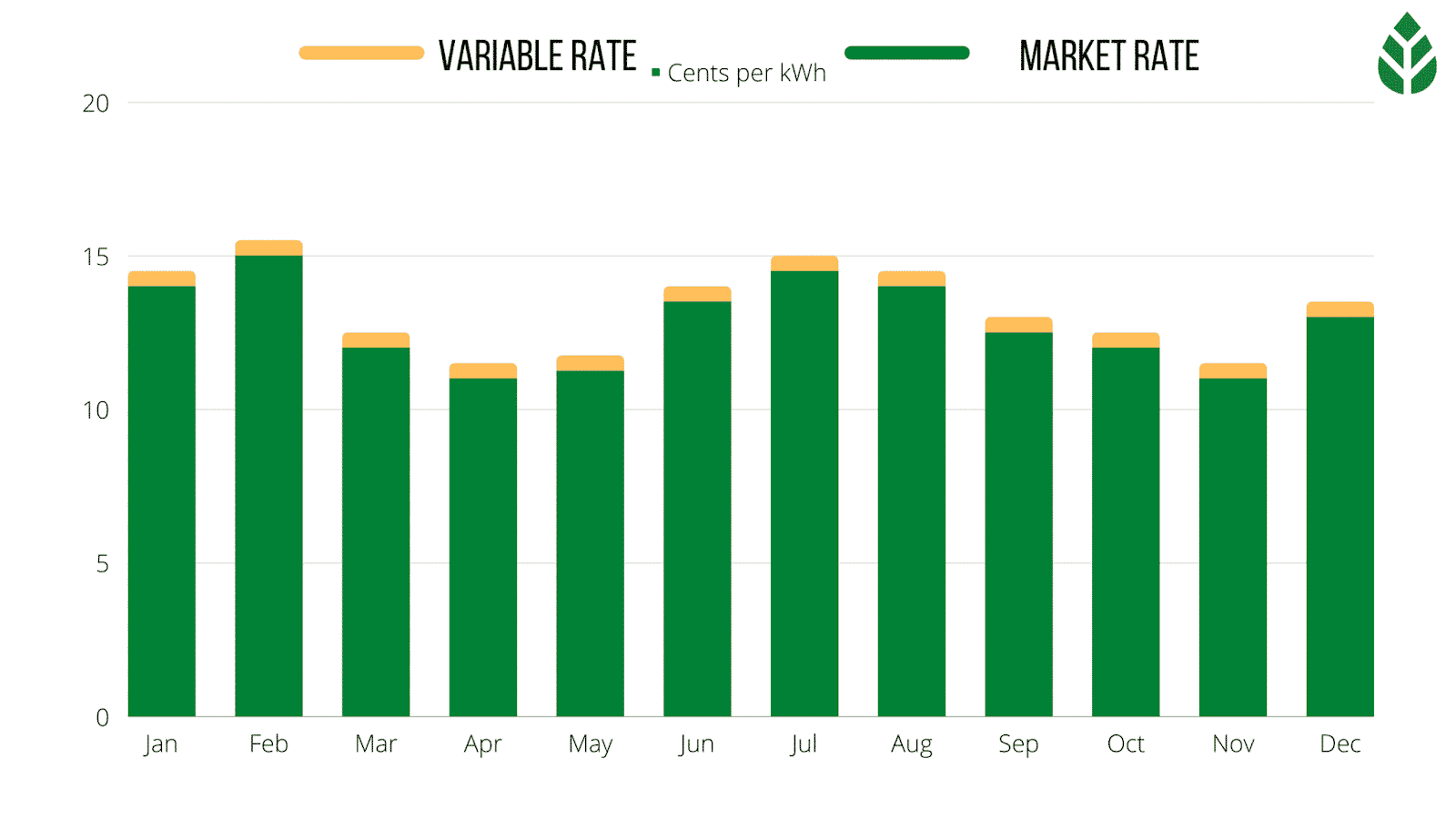
No-Deposit and Prepaid Energy Plans in Texas
Many power plans require a deposit upon signing a contract to protect the REP from losses should a customer be unable to pay their energy bill. However, certain companies will offer a no-deposit electricity plan option so long as the customer passes a credit check.
If the customer doesn’t have a high enough credit score for no-deposit electricity, they can still avoid paying a deposit by opting for a prepaid, or “pay-as-you-go,” electricity plan.
With a prepaid plan, the customer pays in advance for a set amount of electricity. The good news is that the customer is able to track their electricity usage online and can reload the account when it runs low. However, rates are not fixed in a prepaid plan, so it can be harder to plan out expenses.
| PROS OF A PREPAID ENERGY PLAN IN TEXAS | CONS OF A PREPAID ENERGY PLAN IN TEXAS |
| The obvious — no deposit. All of the money you pay to the energy provider goes directly toward powering your home. | You’ll have to pay for your electricity upfront and remember when to top up your meter. |
| You have total control over how much you spend on your electricity. | Your power will be automatically shut off if you hit the threshold of electricity you paid for (this can be avoided by actively monitoring your usage or enrolling in an auto-pay plan). |
| You don’t have to sign a contract that may come with cancellation fees. | You’ll pay a higher rate per kWh compared to other plans (in most cases). |
Green Energy Plans in Texas
Green energy plans are those that supply electricity from renewable energy sources. That’s going to be primarily wind and solar energy in Texas.11
Some REPs may have Green-e Verification or a similar certification to ensure that the electricity is responsibly generated, transmitted and distributed. Non-green energy plans, at least in Texas, rarely meet 25% of their total energy from renewable sources.12
Most green energy REPs will still offer variable- and fixed-rate plan options; the main difference is where their energy comes from.
| PROS OF A GREEN ENERGY PLAN IN TEXAS | CONS OF A GREEN ENERGY PLAN IN TEXAS |
| You can feel good about where your electricity is coming from. | On average, renewable plans cost around 1 cent per kWh more than non-renewable plans. (If you use 1,000 kWh per month, that will be about a $10 difference.) |
| You can support clean energy without the large upfront investment of solar or wind energy. | They’re not offered by all energy companies, so you’ll have more limited options when choosing a |
Business Energy Plans in Texas
Are you a Texas business owner or in charge of choosing an electricity provider for a business? It’s important to know that not all REPs will provide commercial electricity, so you’ll need to search for the ones that do.
Business energy plans may also be needed for industrial properties, schools, government buildings and churches.
Most business energy suppliers will offer variable or fixed-rate options.
Need more information to help your decision-making? You can use this tool or click below to be connected with local energy providers near you.
How Do You Find the Best Electricity Rates in Texas?
When searching for the best electricity rates in Texas, keep in mind that rates and the average cost of electricity can vary based on numerous factors, so you may be given a different electric rate than that of your neighbors. Here are a few things to consider:
Your Energy Usage
The amount of electricity your household consumes may affect the rate you pay per kWh. Most REPs offer tiered plans based on average energy usage. Tiered-rate energy plans are often called “V-shaped plans” because the rates are more expensive for people who use the least and most amounts of energy and are lowest for those in the middle.
For example, in a typical tiered plan, customers who use around 500 kWh or 2,000 kWh per month will pay more than those who use around 1,000 kWh per month. According to the EIA, the average Texas home uses around 1,094 kWh per month.8
Your Contract Length
The length of the contract will also play a factor in the cost of your electricity. As with most things, the longer you commit to one provider, the better deal you’ll get. We’ll discuss the different types of electricity plans in the next section.
A word of caution: Read the fine print and ask questions before you sign.
Many contracts come with startup fees as well as cancellation fees for early termination. And while some Texas electricity providers advertise a $10 cancellation fee, the fine print may read that it’s really $10 per month left on the contract.
Some additional things to consider when comparing contract lengths include:
- Early-termination fees
- Cancellation fee
- Enrollment or sign-up fees generally reserved for shorter terms
- New-customer or introductory rates that will increase part way through your contract
Unfortunately there are a lot of sketchy energy companies out there just trying to get your money. To get connected with an energy provider we trust, use this tool or click one of the links below to compare prices and find the right plan for you.
Electricity Facts Label
When shopping for energy providers in Texas, always check their Electricity Facts Label (EFL). Similar to a nutrition label you see on your favorite snacks, an EFL will give you all of the information about a company’s electricity prices, contract lengths and terms, sources of generation, and emission levels.9 Here’s an example of what to expect on an EFL:
What Should You Look For When Choosing an Electricity Provider In Texas?
Whether you’ve just moved to Texas or you’re looking to save money by switching electricity companies, there are certain things you should look out for when researching an electricity provider.
Choosing an Electric Provider as a New Texas Resident
You’re new to Texas, so you may not be as familiar with the idea of deregulation. Maybe you’re moving from a state where deregulated energy isn’t an option. It can be tempting to pick the provider with the lowest rates, but if you’re moving from a different state (especially one with a different climate) you may not know how your energy usage is going to be in your new home.
As a new Texas resident, we encourage you to consider the following:
- Customer reviews: Hearing first-hand accounts of what it’s like to work with this electricity provider will tell you a lot about how your experience will go. Keep in mind that people don’t exactly love paying for electricity, so you won’t find a perfect rating with any company. But still, you should sift through customer reviews online to see what people in your area are saying about their experience with this company. Better yet, ask your neighbors!
- Company history: There are more than 150 REPs in Texas. If a company has been able to stick around for decades despite all the competition, it likely means they have a lot of happy customers who wouldn’t ever look to switch energy providers.
- Percentage of renewable energy: You’re reading EcoWatch, so we assume you care deeply about your environmental impact. Be wary that not every energy company that claims to offer “green plans” is actually offering a renewable energy plan. Fortunately, each Texas energy company has an EFL that clearly outlines how much of their energy is sourced from renewables. The state standard is at least 25%.
Switching Electric Providers in Texas
If you’ve been living in Texas but you’re unhappy with your electricity provider, you probably don’t need us to tell you why they haven’t been living up to your energy needs (or wants).
Still, before choosing a new Texas electricity company, we recommend considering the following:
- Percentage of renewable energy: Consider switching to a provider who is striving to make a more positive environmental impact. The bad news is that not every energy company that offers “green plans” is using 100% renewable energy. The good news is that each company is required to have an EFL for each plan that states how much of their energy is sourced from renewables (the state standard is at least 25%).
- Electricity rates — read the fine print: Compare providers to see who’s offering the best value plan. Notice: we don’t say the cheapest price. If one company is offering a lower rate but it’s a new customer deal and it only lasts for the first three months of a 36-month contract, it may not be the best price over time. Be sure you fully understand the terms and conditions before you sign.
- Types of plans offered: A lot of Texans on variable-rate plans were shocked to see their electricity bills skyrocket during the winter storm of February 2021. If you were one of the victims of an insanely high utility bill, you may consider switching to a fixed-rate plan.
How to Switch Electricity Plans in Texas
Switching electricity plans in Texas is very simple and takes just a few minutes of your time. Since all of the providers in Texas deliver energy from the same producers, switching plans is all done digitally. Your service won’t be affected, and the only thing that will change is your rate.
Before you get started, you should check to see if you’re enrolled in a contract, as you might need to pay a cancellation fee to get out of it. Most plans switch to a month-to-month option after the contract expires, though, so chances are good that you’ll be able to make the switch without a fee.
Just follow the steps below to find the best provider and electricity rate for you:
- Scroll to the top of this page and enter your zip code.
- Choose whether you’re switching providers or if you just moved to Texas and need new service. If you’re getting new service, then you don’t need to worry about paying a cancellation fee for your current provider. If you’re currently enrolled in a contract with a different provider, you should contact them or check your contract for information on cancellation fees.
Some providers don’t charge an early cancellation fee, and others charge $200 or more. In the next step, if you choose to have a live advisor help you, they can do the necessary research for you and potentially even help you reduce the cancellation fee.
- You have three options to choose from. Advisor Plus+ is a paid service, but a live representative will help you choose the best plan for your needs. This is beneficial, as the cheapest plan isn’t always the best. The advisor will consider fixed and variable-rate plans, go over when you tend to use electricity to get the best time-of-use rates, check your bill to see how much electricity you use per month to secure the best prices and more.
EnergyBot Advisor is a free service, and a plan is chosen for you based on criteria that you enter. This option delivers a less customized selection, but it should still meet the needs of most customers.
Standard View is also a free service, but it requires the most work on your part, as you’ll need to look at the plan options and choose one manually. You’ll see the contract term, rate, discounts, renewable energy percentage and more for each plan available in your area.
- If you chose one of the first two options in the previous step, you’ll get on-screen prompts to help you make the switch from your current provider to the new one selected for you. If you chose the Standard View prompt, you’ll get a list of providers with plan rates and terms, and you can simply click on Select Plan to move forward.
- Finally, you’ll be prompted with a button that will take you to the provider’s site. You’ll also be told what plan to look for once you’re there to sign up and lock in your new rate.
EcoWatch Methodology on Energy Providers in Texas:
At Ecowatch we take a sustainable approach to our best lists. We selected the best energy providers in Texas by examining a variety of different components of the energy providers business. We considered their renewable options or green plans as the most weighted component of our scoring. We looked at how many different types of plans were available, how many years of experience the companies had, what terms and contracts looked like at each company. Lastly, we took a look at the providers track record when it came to delivering the service and customer service. We examined BBB ratings, looked into B Corp certifications, and found out if they offered competitive and fair pricing. All of these factors helped us decide which companies to recommend and which superlative to award!
FAQ: Texas Electricity Plans
Here at EcoWatch, we often get questions about how to navigate the wide range of suppliers and how to choose the best one. Below, we’ll answer some of the questions we see most often.
If you’re looking for cheap electricity rates, the lowest one in Texas is currently 10.9 cents per kWh for a 24-month fixed-rate plan through Discount Power. If you’re searching for a green plan, the most affordable is Gexa Energy’s Eco Saver Plus 12 plan coming in at 11.3 cents.
It’s hard to answer this question because the best Texas energy provider for you may be different than what’s best for your neighbor. If you’re eco-focused, we believe Constellation, TXU Energy and Green Mountain Energy are the best Texas energy providers.
The average electric bill in Texas is $162.17, according to the most recent data from the U.S. Energy Information Administration (EIA).13
One of the easiest ways to lower your electricity bill in Texas is by using this tool to shop around for the best value energy rates. If you’re happy with your electric provider and looking for other ways to lower your energy bill, consider switching to solar in Texas or reading some of our energy-saving guides:
Again, the best energy plan in Texas depends on your needs. If you’re a night owl, TXU’s Energy Free Nights & Solar Days plan may be best for you. If you want the greenest energy plan, you may choose one of Green Mountain Energy’s plans. We encourage you to review this article to compare the top energy providers in Texas and find one that best fits your energy needs.
More Energy Guides
- What Are the Best Energy Rates in Dallas
- What Are the Best Energy Rates in Houston
- Is Going Solar Worth It
- What is the Best Home Energy Audit
- What Are the Best Energy Rates in Pennsylvania
- What Are the Best Energy Rates in New Jersey
- What Are the Best Energy Rates in California
- Why Are Texas Electricity Rates So High

 233k
233k  41k
41k  Subscribe
Subscribe 
